
Rashaya: The Jewel of Lebanon's Mountains
Nestled in the picturesque mountains of Lebanon, Rashaya is a hidden gem that offers a perfect blend of history, culture, and natural beauty. This charming town is known for its traditional stone houses and narrow cobblestone streets, which transport visitors back in time. The town's architecture is a testament to its rich heritage, with many buildings dating back to the Ottoman era. As you wander through Rashaya, you'll discover a wealth of historical sites, including the famous Rashaya Citadel, which played a significant role in Lebanon's fight for independence. Rashaya is not just about history; it also boasts stunning natural landscapes that are perfect for outdoor enthusiasts. The surrounding mountains offer numerous hiking trails, providing breathtaking views of the valley below. In the winter, the nearby slopes become a haven for skiers and snowboarders. The town's mild climate makes it a great destination year-round, whether you're looking to escape the summer heat or enjoy a snowy retreat. One of the highlights of visiting Rashaya is experiencing the local culture and hospitality. The town's residents are known for their warm and welcoming nature, making visitors feel right at home. Be sure to visit the local markets and try some traditional Lebanese dishes. The flavors and aromas of the local cuisine are sure to leave a lasting impression. With its rich history, stunning landscapes, and vibrant culture, Rashaya is a must-visit destination for anyone traveling to Lebanon.
Local tips in Rashaya
- Visit the Rashaya Citadel early in the morning to avoid crowds and enjoy the best views.
- Wear comfortable shoes for exploring the cobblestone streets and hiking trails.
- Try the local Lebanese dishes at family-run restaurants for an authentic culinary experience.
- Check the weather forecast before planning outdoor activities, especially during winter.
- Interact with the locals to learn more about the town's history and culture.
Rashaya: The Jewel of Lebanon's Mountains
Nestled in the picturesque mountains of Lebanon, Rashaya is a hidden gem that offers a perfect blend of history, culture, and natural beauty. This charming town is known for its traditional stone houses and narrow cobblestone streets, which transport visitors back in time. The town's architecture is a testament to its rich heritage, with many buildings dating back to the Ottoman era. As you wander through Rashaya, you'll discover a wealth of historical sites, including the famous Rashaya Citadel, which played a significant role in Lebanon's fight for independence. Rashaya is not just about history; it also boasts stunning natural landscapes that are perfect for outdoor enthusiasts. The surrounding mountains offer numerous hiking trails, providing breathtaking views of the valley below. In the winter, the nearby slopes become a haven for skiers and snowboarders. The town's mild climate makes it a great destination year-round, whether you're looking to escape the summer heat or enjoy a snowy retreat. One of the highlights of visiting Rashaya is experiencing the local culture and hospitality. The town's residents are known for their warm and welcoming nature, making visitors feel right at home. Be sure to visit the local markets and try some traditional Lebanese dishes. The flavors and aromas of the local cuisine are sure to leave a lasting impression. With its rich history, stunning landscapes, and vibrant culture, Rashaya is a must-visit destination for anyone traveling to Lebanon.
When is the best time to go to Rashaya?
Iconic landmarks you can’t miss
Al Raouche Rocks
Discover the stunning Al Raouche Rocks in Beirut - a breathtaking natural wonder and historical landmark along the Mediterranean coast.
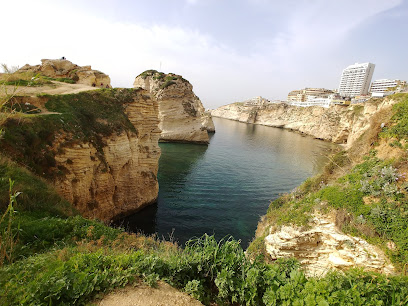
Jeita Grotto
Explore the breathtaking beauty of Jeita Grotto, an enchanting natural wonder with stunning caves and an underground river just outside Beirut.
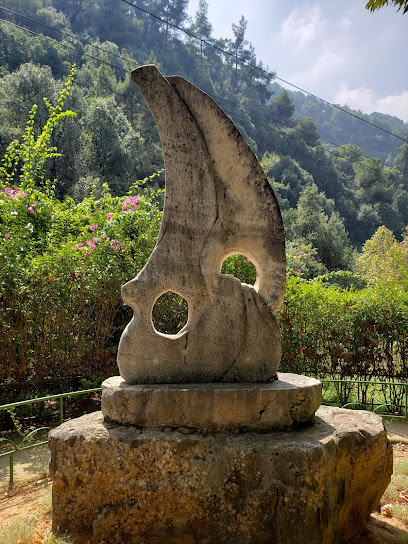
Our Lady of Lebanon بازيليك سيدة لبنان
Explore the spiritual and scenic wonders of Our Lady of Lebanon, a stunning Catholic church offering breathtaking views and a serene atmosphere in Harissa.
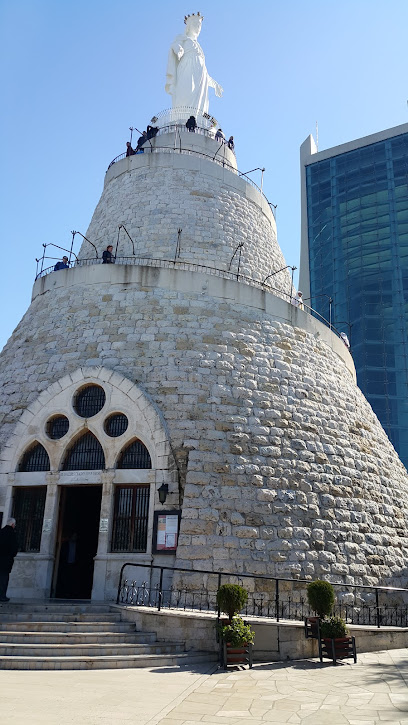
Beiteddine Palace
Explore Beiteddine Palace, a historical landmark in Lebanon, showcasing exquisite architecture, rich history, and stunning natural beauty.
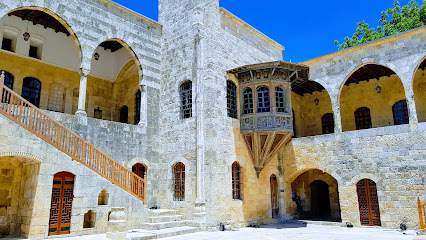
Moussa Castle
Discover the enchanting Moussa Castle, a historical landmark in Lebanon that showcases rich culture, stunning architecture, and breathtaking views.
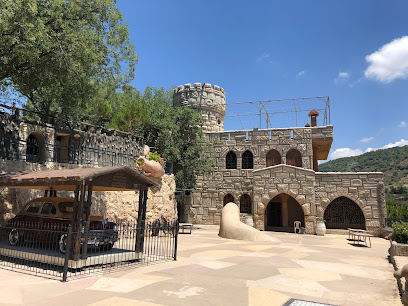
Mleeta Landmark
Discover the captivating history of Lebanese resistance at Mleeta Landmark, a unique blend of culture and nature in Lebanon's stunning landscapes.
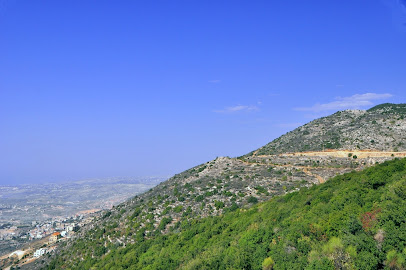
Lady Of Zahle
Explore the Lady of Zahle, a stunning church in Lebanon that embodies rich culture and breathtaking architecture, perfect for spiritual reflection and scenic views.
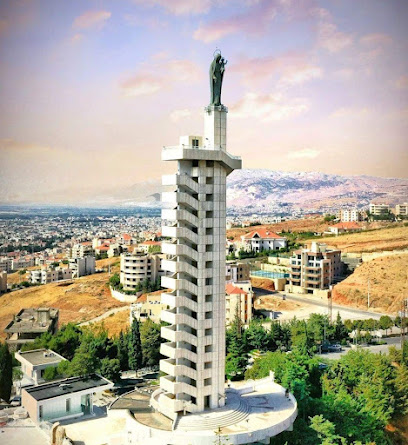
Afqa Waterfall
Experience the breathtaking beauty of Afqa Waterfall, a natural wonder in Lebanon surrounded by lush landscapes and serene hiking trails.
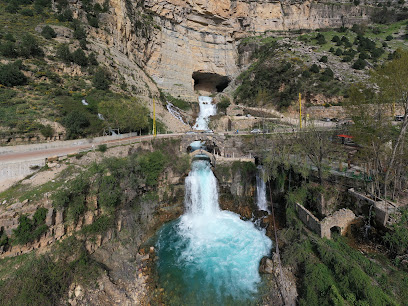
Saint Charbel Church & Statue - Faraya
Explore the serene beauty and spiritual significance of Saint Charbel Church & Statue in Faraya, a must-visit religious destination in Lebanon.
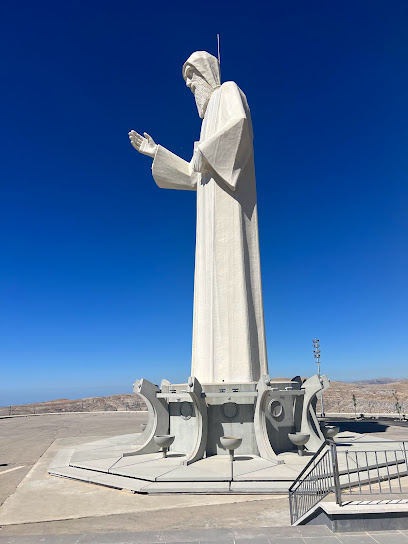
Rachaya Citadel (Citadel of Independence)
Explore the historic Rachaya Citadel, a stunning castle showcasing Lebanon's cultural heritage and breathtaking panoramic views of the surrounding landscape.
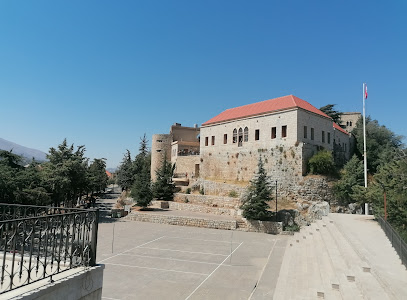
مغارة كفرحيم
Discover Deir El Qamar, a stunning Lebanese village rich in history, culture, and breathtaking landscapes, perfect for your next travel adventure.
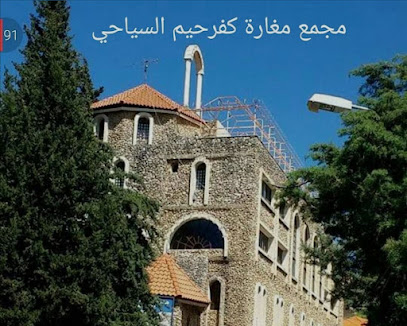
Chabrouh Dam
Explore the breathtaking Chabrouh Dam in Faraya, Lebanon, a stunning tourist attraction perfect for nature lovers and outdoor enthusiasts.
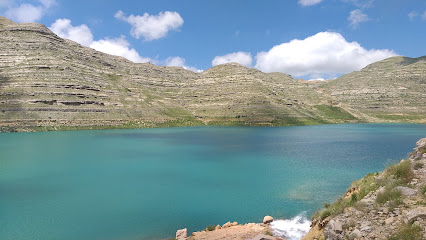
Fakher El Dine Ii Le Grand Castle
Discover the historic grandeur of Fakher El Dine II Le Grand Castle in Deir El Qamar, an architectural marvel steeped in Lebanese heritage.
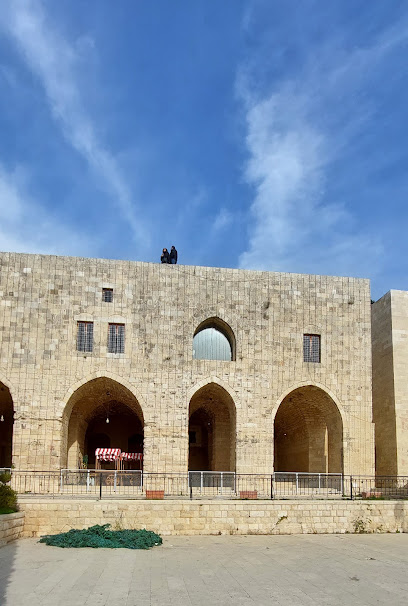
Atelier Assaf
Experience the vibrant fusion of art and culture at Atelier Assaf, Lebanon's premier museum showcasing local creativity and heritage.
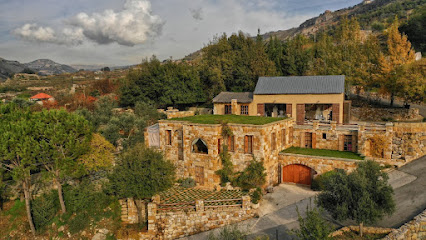
Faqra Roman Ruins (Kfardebian)
Explore the captivating Faqra Roman Ruins, a breathtaking historical landmark in Kfardebian, showcasing ancient Roman architecture and stunning mountain views.
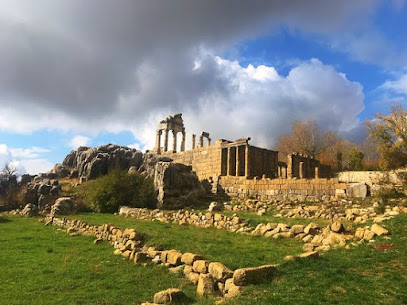
Unmissable attractions to see
Tel Dan Nature Reserve
Explore Tel Dan Nature Reserve: a blend of ancient history, lush landscapes, and refreshing waters in northern Israel.
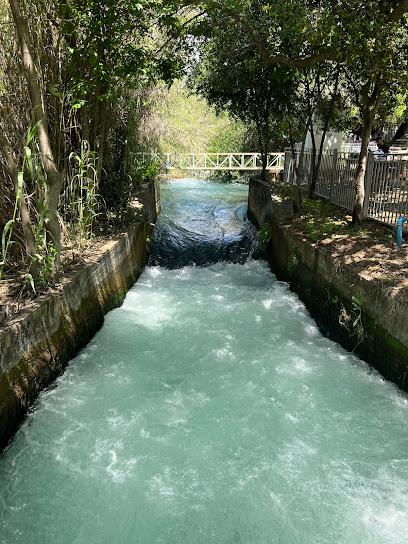
Hermon Stream Nature Reserve
Explore Israel's natural beauty and ancient history at the Hermon Stream Nature Reserve, home to stunning waterfalls and archaeological wonders.
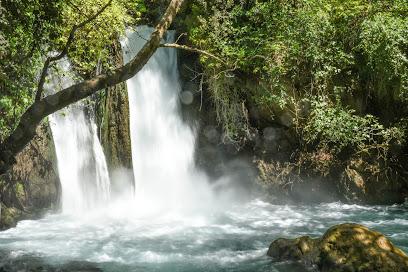
Nahal Snir Nature Preserve
Discover Nahal Snir Nature Preserve: Hike, relax, and immerse yourself in the beauty of the Galilee's largest Jordan River tributary.
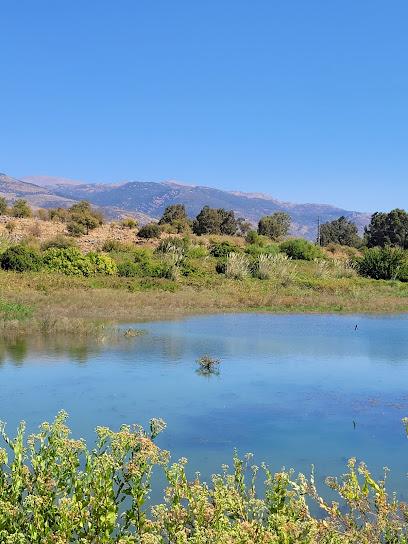
Nimrod Fortress National Park
Discover Israel's largest medieval fortress in the Golan Heights, offering stunning views and a journey through Crusader history.
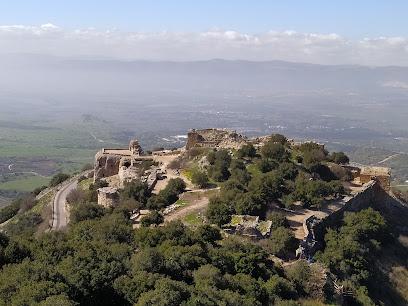
Sidon Sea Castle
Explore the historic Sidon Sea Castle, a 13th-century Crusader fortress offering stunning views and a glimpse into Lebanon's rich past.
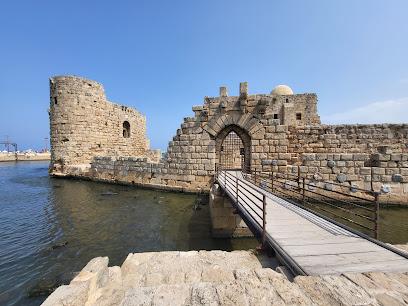
Moussa Castle
Discover Moussa Castle in Lebanon's Chouf Mountains: A unique medieval-style castle showcasing Lebanese history, culture, and one man's extraordinary vision.
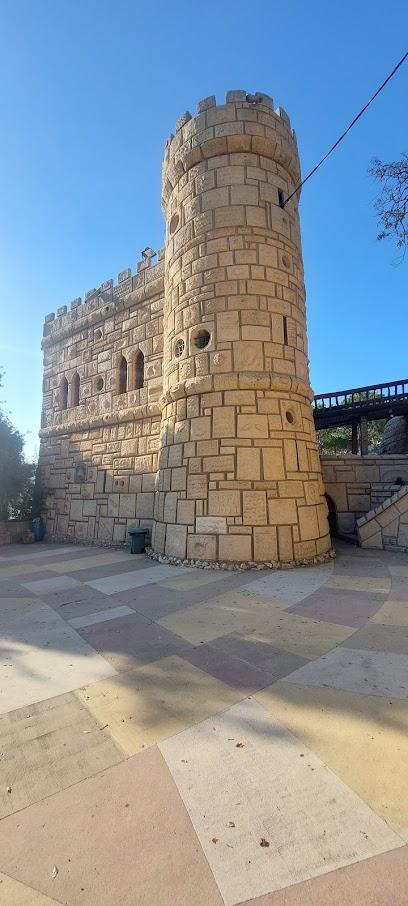
Mt Bental Lookout
Discover panoramic views and military history atop Mt. Bental Lookout in the Golan Heights, near the Syrian border.
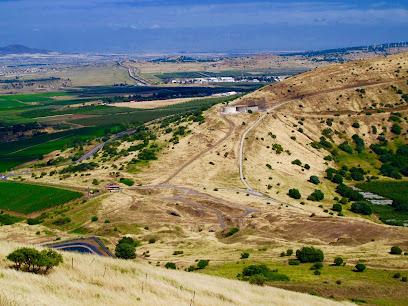
Pelter Winery יקב פלטר
Explore Pelter Winery in Ein Zivan, a delightful destination offering exquisite wines and stunning views in Israel's picturesque wine country.
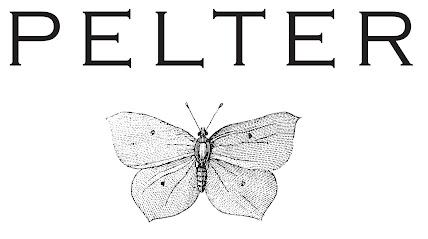
Jezzine Waterfall
Discover Jezzine Waterfall: A majestic Lebanese landmark offering natural beauty, hiking, and a tranquil escape in South Lebanon.
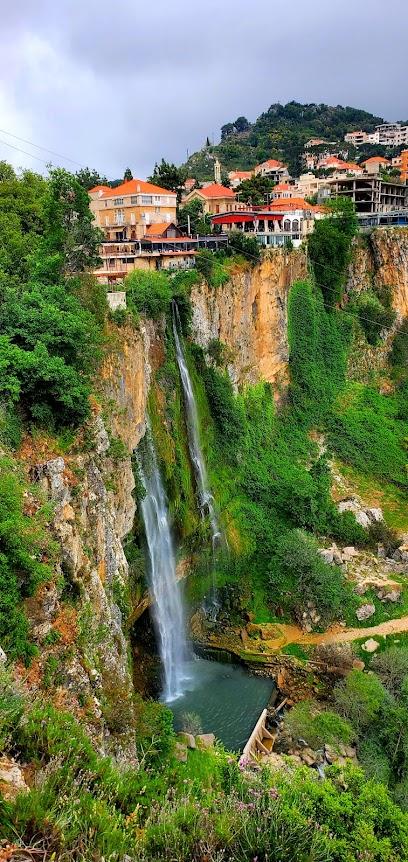
Shouf Biosphere Reserve Barouk Cedar Forest
Explore Lebanon's ancient Barouk Cedar Forest in the Shouf Biosphere Reserve, a haven of natural beauty and biodiversity.
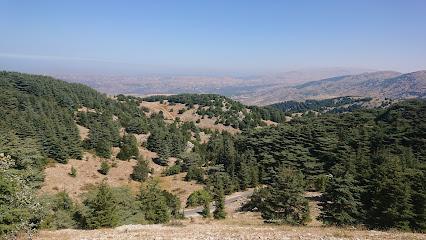
Umayyad City Ruins
Discover the ancient Umayyad City Ruins in Anjar, Lebanon, a UNESCO World Heritage Site and a testament to early Islamic civilization.
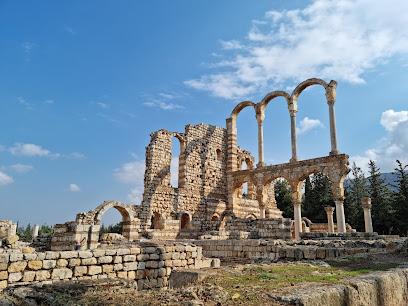
Lady Of Zahle
A hilltop Marian shrine in Zahlé, Lebanon, offering panoramic views of the Bekaa Valley and a serene spiritual experience.
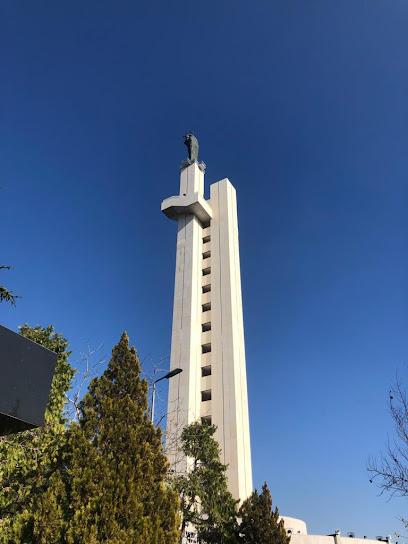
Beaufort Castle
Explore the historic Beaufort Castle in Southern Lebanon, a Crusader fortress with breathtaking panoramic views of the Litani River valley.
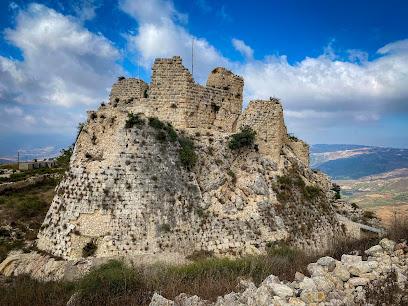
Chateau Ksara
Explore the rich heritage and exquisite wines of Chateau Ksara, Lebanon's oldest winery, nestled in the scenic Bekaa Valley.
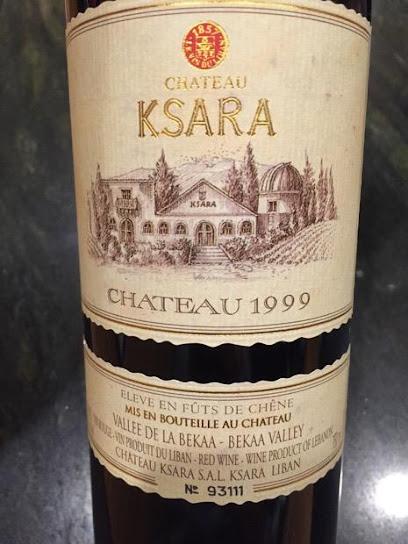
Soap Museum - Saida
Discover the history and art of soap making at Sidon's Soap Museum, a sensory experience in a beautifully restored historic factory.
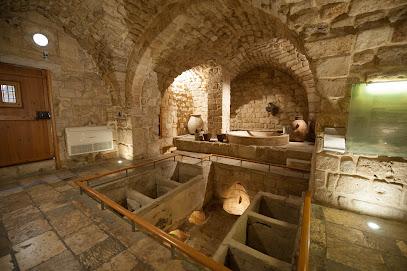
Essential places to dine
Restaurant Wadi Chamsine
Experience the authentic flavors of Lebanese cuisine at Restaurant Wadi Chamsine in Bar Elias - a must-visit for food lovers!
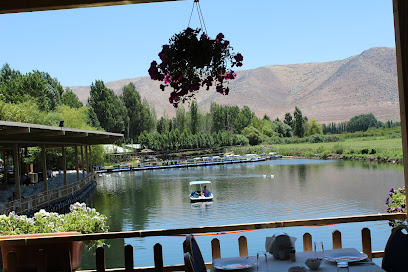
Lakkis Farm - Chtaura
Experience authentic Lebanese flavors amidst lush greenery at Lakkis Farm in Chtaura – where every meal tells a story.
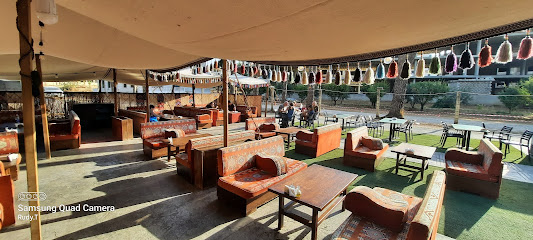
Sama Chtaura
Discover authentic Lebanese flavors at Sama Chtaura, where tradition meets culinary excellence in the heart of Bekaa Valley.
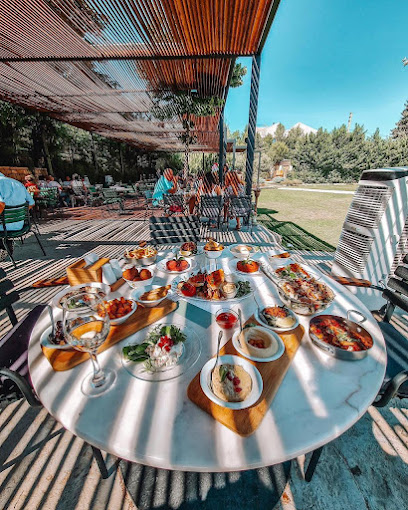
Bitmoon
Experience the rich flavors of Lebanon at Bitmoon in Dahr El Ahmar - where culinary tradition meets modern flair.
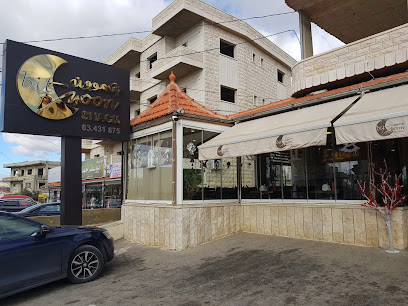
O Bois Restaurant
Discover O Bois Restaurant in Khenchara - where local flavors meet exceptional dining experiences amidst stunning natural beauty.
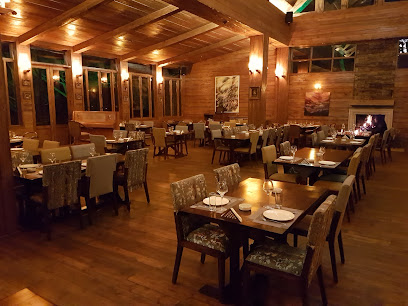
Mashhour Restaurant
Experience authentic Lebanese cuisine at Mashhour Restaurant in Rachaiya - where every dish tells a story of tradition and flavor.
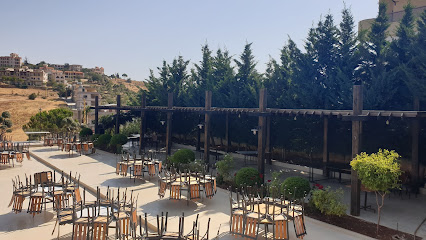
Al Kanz Hotel & Restaurant
Experience authentic Lebanese cuisine at Al Kanz Hotel & Restaurant in Rachaiya—where tradition meets taste amidst stunning surroundings.
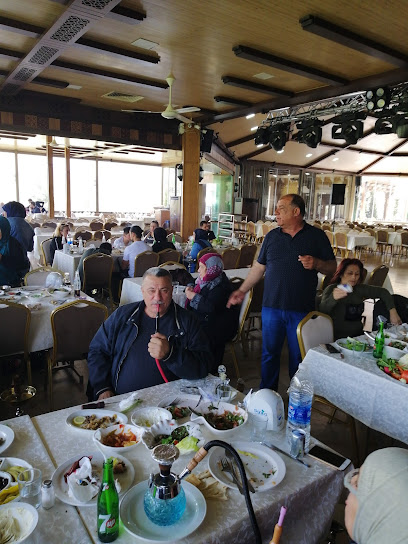
Layali Wadi Al Taim
Experience authentic Lebanese cuisine at Layali Wadi Al Taim in Rachaiya – where every dish tells a story.
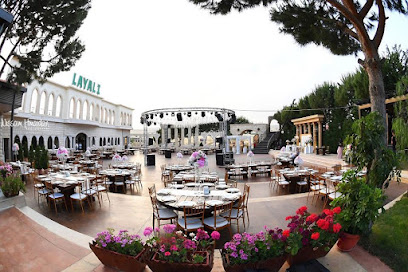
Al Farooj
Discover authentic Lebanese flavors at Al Farooj in Dahr El Ahmar – where every dish tells a story.
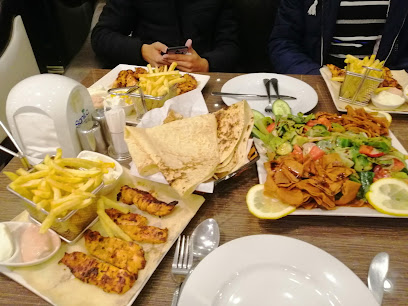
مطعم مشهور
Experience authentic Lebanese flavors at مطعم مشهور in Dahr El Ahmar – a culinary gem that celebrates local ingredients and culture.
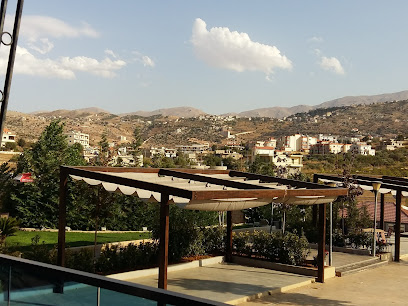
Farouj Al Balad
Experience authentic Lebanese cuisine at Farouj Al Balad in Red; a delightful journey through flavors awaits every visitor.
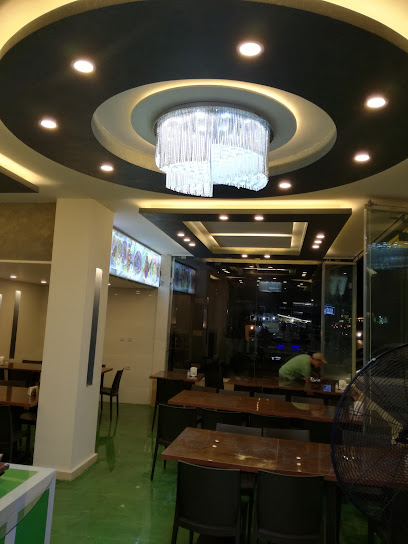
Dream Resto & Cafe
Discover the perfect family-friendly dining experience at Dream Resto & Cafe in Dahr El Ahmar, where delicious food meets warm hospitality.
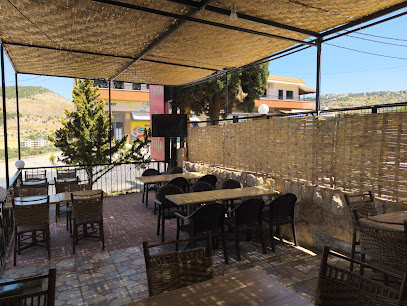
Maestro Chef
Experience exquisite Lebanese cuisine at Maestro Chef in Dahr El Ahmar - where tradition meets modern culinary artistry.
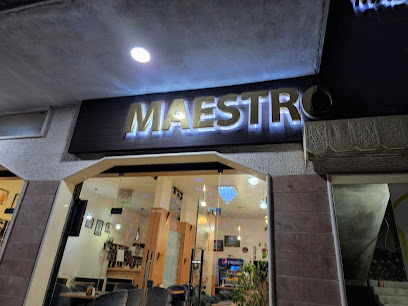
فرن مناقيش
Savor authentic Lebanese manakish at فرن مناقيش in Jlala - a culinary delight for every food lover.
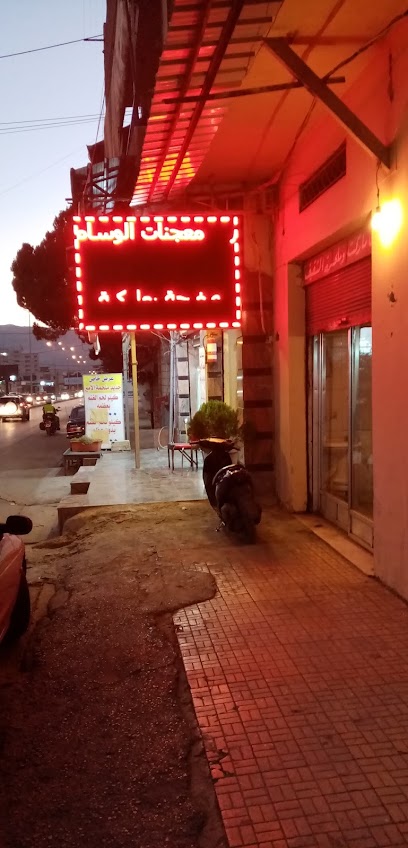
Haramoun Chicken
Savor delicious chicken dishes at Haramoun Chicken, a must-visit fast food restaurant in Dahr El Ahmar that delights with local flavors.
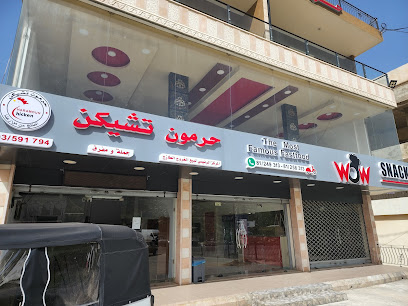
Markets, malls and hidden boutiques
A or B rashaya
Explore the vibrant A or B Rashaya supermarket in Rachaiya for a delightful shopping experience featuring local produce and unique Lebanese goods.
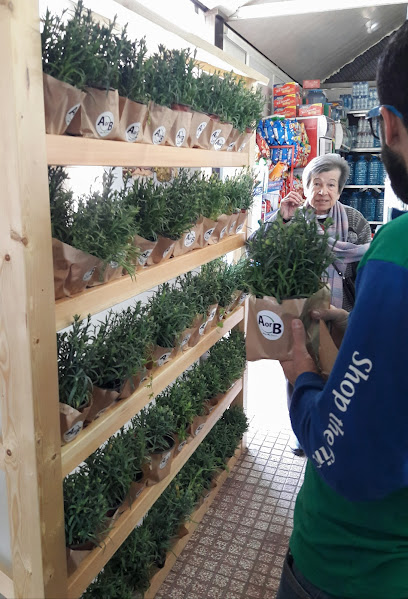
Al-Sirat Shopping
Explore Al-Sirat Shopping in Bekaa for a unique blend of gifts, fashion, and local culture, perfect for every tourist's shopping adventure.
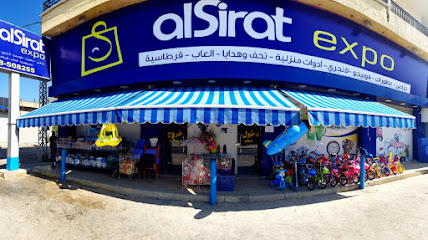
HADAYA , Aley
Discover the essence of Lebanese culture at HADAYA, Aley’s premier gift shop offering unique crafts and souvenirs in a warm, welcoming atmosphere.

Le Citadelle Patisserie
Discover the sweet side of Rachaiya at Le Citadelle Patisserie, where traditional flavors meet modern pastry art in a charming setting.
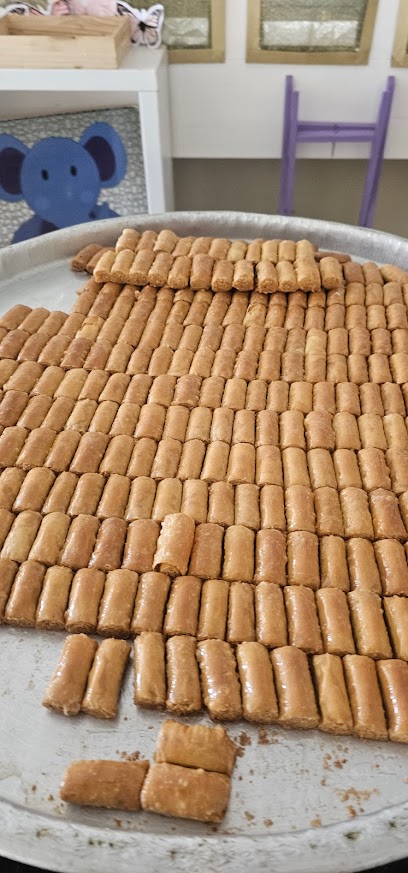
Gabi Supermarket
Experience the heart of Lebanese cuisine at Gabi Supermarket in Rachaiya, where fresh local produce and unique culinary delights await.

Stylish Black Rashya Al Wadi
Explore Stylish Black Rashya Al Wadi in Rachaiya for a unique shopping experience that blends local fashion with contemporary style.
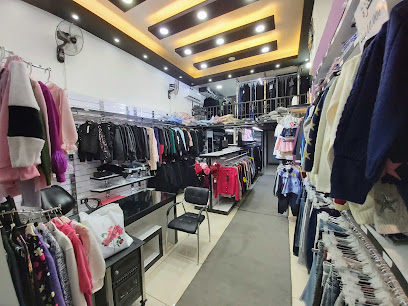
Antique Boulevard
Explore Antique Boulevard in Zahlé for a unique collection of vintage treasures and timeless artifacts reflecting rich cultural heritage.

معصرة القضماني
Explore معصرة القضماني in Aaqbeh, where local produce and authentic Lebanese flavors come together for an unforgettable shopping experience.

Leylak
Discover Leylak, a charming gift shop along the Zahlé-Baalbek highway, offering unique souvenirs and a taste of Lebanon's rich culture.
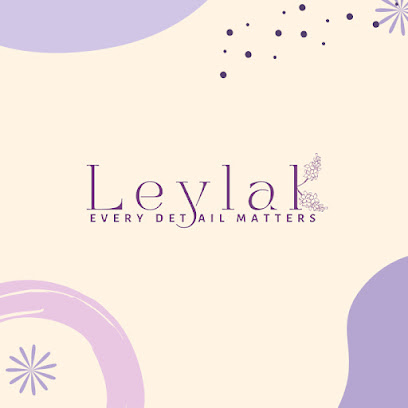
Al halabi jewelry
Discover exquisite craftsmanship and unique pieces at Al Halabi Jewelry in Rachaiya's charming old souk, a must-visit for every traveler.
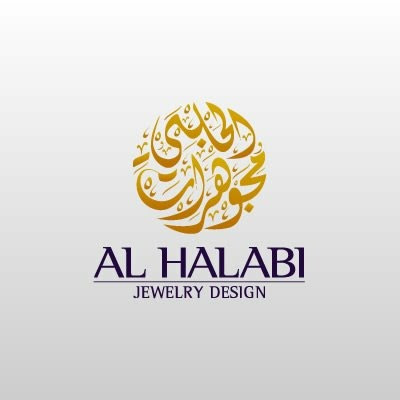
Khaldoun pharmacy
Explore natural health at Khaldoun Pharmacy in Rachaiya, where expert advice and homeopathic remedies await your visit.

ملحمة البيادر
Discover the authentic flavors of Lebanon at ملحمة البيادر, Rachaiya's premier destination for fresh, quality meat products.
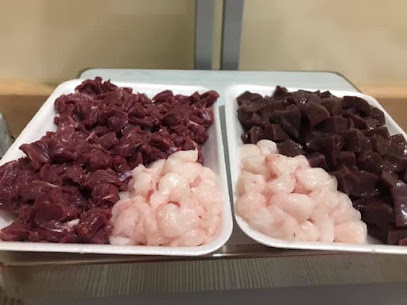
Al Qalaa - Pharmacy
Explore Rachaiya while staying healthy at Al Qalaa Pharmacy, your trusted partner for health and wellness needs in Lebanon.

Rabab's Handmade
Explore the heart of Lebanese craftsmanship at Rabab's Handmade, your go-to souvenir shop in Rachaiya for unique, handcrafted treasures.

Abougoush Electric
Explore Abougoush Electric in Rachaiya for all your electronic needs, offering a wide range of gadgets and appliances at competitive prices.
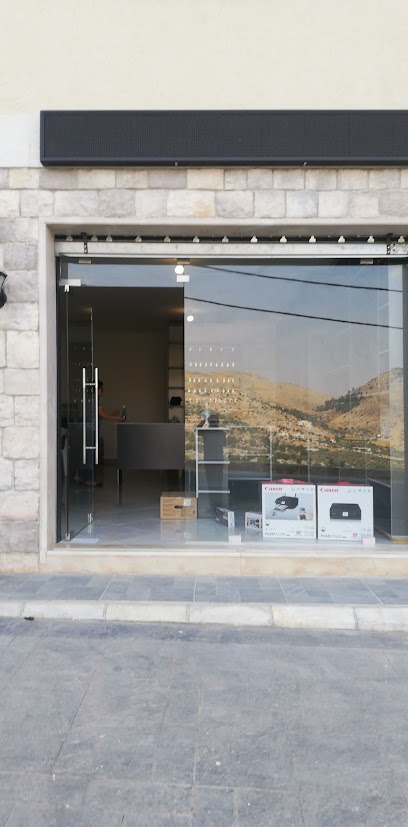
Essential bars & hidden hideouts
Brut Bar
Discover the vibrant atmosphere and exquisite selection of beverages at Brut Bar in Zahlé, Lebanon's premier destination for wine and craft beer enthusiasts.
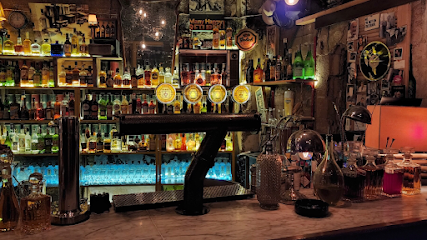
Mashhour Restaurant
Experience the authentic taste of Lebanon at Mashhour Restaurant in Rachaiya, where every meal is a celebration of flavor and tradition.
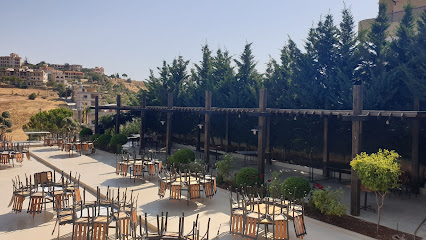
Chapter II
Discover Chapter II in Wadi El Aarayech, where vibrant nightlife meets local culture in a modern bar setting, perfect for relaxation and socializing.
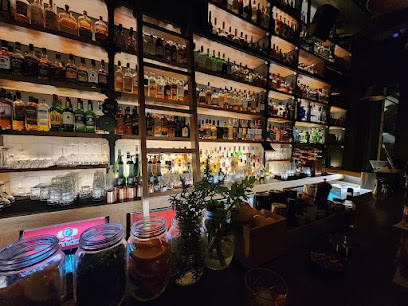
Layali Wadi Al Taim
Experience the authentic flavors of Lebanon at Layali Wadi Al Taim in Rachaiya, a culinary haven for tourists seeking memorable dining.
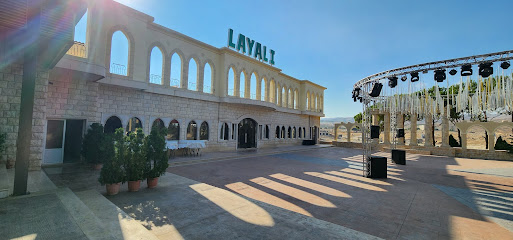
Pravda Valley Zahle
Experience the vibrant nightlife at Pravda Valley Zahle, a top bar featuring live music, cocktails, and delicious dining in a lively ambiance.
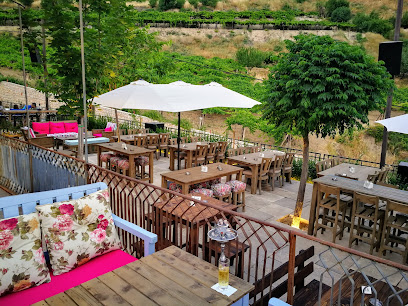
Rayme's Pub & Pizza
Discover the lively ambiance of Rayme's Pub & Pizza in Ferzol, where delicious pizzas and refreshing drinks create an unforgettable experience.
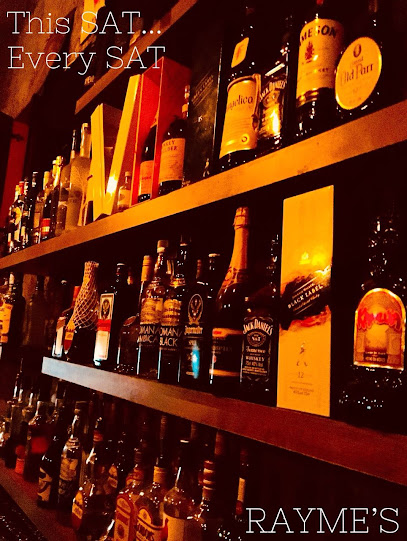
Reia
Experience vibrant nightlife at Reia, a top pub in Fraikeh known for its lively atmosphere, delicious drinks, and local entertainment.
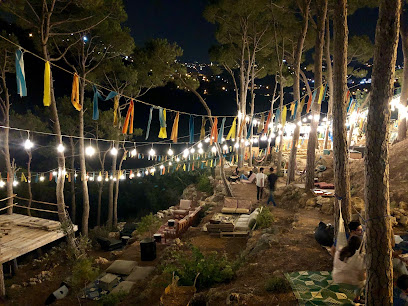
Brothers Resto Pub
Discover the lively charm of Brothers Resto Pub in Barti, Lebanon, where great food, drinks, and entertainment come together for an unforgettable experience.
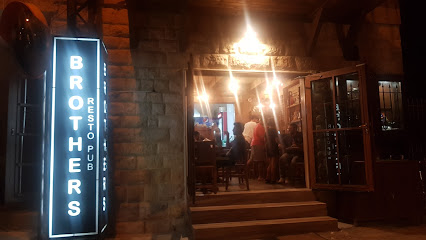
Drink And Sing Chtaura
Experience unforgettable nights of music and fun at Drink And Sing Chtaura, your go-to karaoke bar in Lebanon's vibrant nightlife scene.
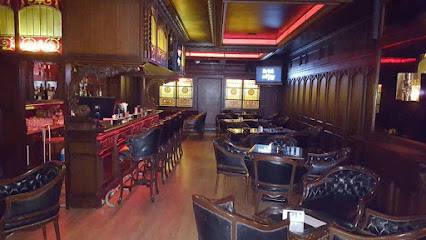
The Bush of Aindara
Discover the perfect blend of local charm and refreshing drinks at The Bush of Aindara, a must-visit bar in Ain Dara, Lebanon.
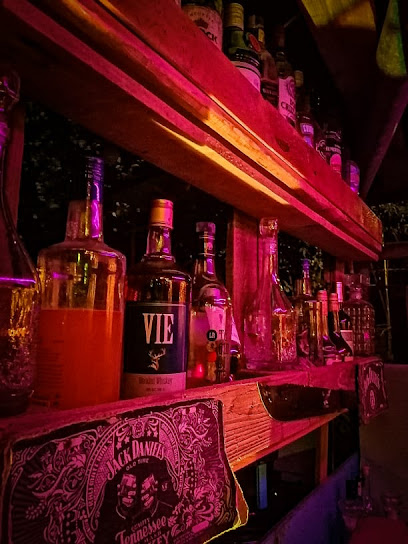
Quality pub
Discover the vibrant nightlife at Quality Pub in Zahlé, where drinks, music, and great company create unforgettable experiences.
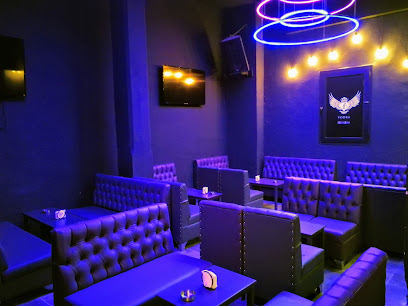
Piece
Experience the vibrant nightlife at Piece, a stylish bar where delightful drinks and a welcoming ambiance await every visitor.
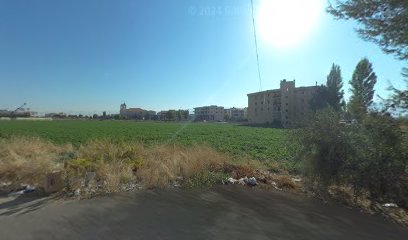
Deelissas
Experience the vibrant nightlife of Lebanon at Deelissas, where expertly crafted cocktails and a lively atmosphere await every visitor.

محمصة الملك
Experience authentic Lebanese coffee culture at Mahal Al-Malik, a cozy bar on Chtoura-Zahlé Highway, perfect for coffee lovers.
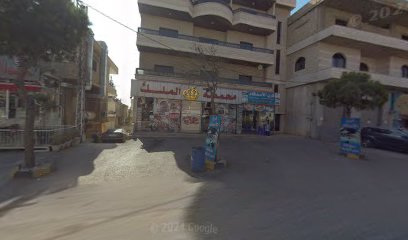
Local Phrases
-
- Helloمرحبا
[marhaba] - Goodbyeوداعا
[wada'an] - Yesنعم
[naam] - Noلا
[la] - Please/You're welcomeمن فضلك
[min fadlik] - Thank youشكرا
[shukran] - Excuse me/Sorryعذرا
['udhran] - How are you?كيف حالك؟
[kayf halak?] - Fine. And you?بخير، وأنت؟
[bikhayr, wa'ant?] - Do you speak English?هل تتحدث الإنجليزية؟
[hal tatHaddath al'iinjliiziyya?] - I don't understandلا أفهم
[la afham]
- Helloمرحبا
-
- I'd like to see the menu, pleaseأود أن أرى القائمة، من فضلك
[awad 'an 'ara alqaima, min fadlik] - I don't eat meatأنا لا آكل اللحم
[ana la aakul allahm] - Cheers!صحتين!
[sahatayn] - I would like to pay, pleaseأريد أن أدفع، من فضلك
[uriid 'an 'udafi', min fadlik]
- I'd like to see the menu, pleaseأود أن أرى القائمة، من فضلك
-
- Help!النجدة!
[alnajda!] - Go away!ارحل!
[irhal!] - Call the Police!اتصل بالشرطة!
[atassal bialshurtah!] - Call a doctor!اتصل بطبيب!
[atassal bitabib!] - I'm lostلقد ضللت الطريق
[laqad dhillat altariq] - I'm illأنا مريض
[ana mareed]
- Help!النجدة!
-
- I'd like to buy...أريد أن أشتري...
[uriid 'an 'ashtari...] - I'm just lookingأنا فقط أتفرج
[ana faqat 'atafarruj] - How much is it?كم يبلغ ثمنه؟
[kam yublagu thamanuh?] - That's too expensiveهذا غالي جدا
[hadha ghali jiddan] - Can you lower the price?هل يمكنك خفض السعر؟
[hal yumkinuk khifd alsu'ur?]
- I'd like to buy...أريد أن أشتري...
-
- What time is it?كم الوقت؟
[kam alwaqt?] - It's one o'clockالساعة الواحدة
[alsaa'at alwahida] - Half past (10)الساعة العاشرة والنصف
[alsaa'at al'ashirah walnusf] - Morningالصباح
[alsaabah] - Afternoonالظهر
[aldhuhur] - Eveningالمساء
[almasa'] - Yesterdayالبارحة
[albariha] - Todayاليوم
[alyaum] - Tomorrowغدا
[ghadan] - 1واحد
[wahid] - 2اثنان
['ithnayn] - 3ثلاثة
[thalatha] - 4أربعة
[arba'ah] - 5خمسة
[khamsah] - 6ستة
[sittah] - 7سبعة
[sab'ah] - 8ثمانية
[thamania] - 9تسعة
[tis'ah] - 10عشرة
[asharah]
- What time is it?كم الوقت؟
-
- Where's a/the...?أين...
[ayn...] - What's the address?ما هو العنوان؟
[ma huwa al'anaan?] - Can you show me (on the map)?هل يمكنك أن تريني (على الخريطة)؟
[hal yumkinuk 'an tureeni (ala alkhariitah)?] - When's the next (bus)?متى يأتي الحافلة التالية؟
[mata ya'ti alhafilat altaliyah?] - A ticket (to ....)تذكرة (إلى...)
[tadhkarah (ila...)]
- Where's a/the...?أين...
History of Rashaya
-
Rashaya's history dates back to the Crusader era when the town was known as 'Rashaya al-Wadi'. It served as a strategic site due to its location near the Litani River and the Bekaa Valley. The Crusaders built fortifications in the area, remnants of which can still be seen today, blending with the town's landscape and offering a glimpse into its medieval past.
-
During the Ottoman era, Rashaya became an important administrative center. The Ottomans constructed a fortress in the town, which played a significant role in the local governance and military operations. The Rashaya Citadel, as it is known today, stands as a testament to this period, showcasing Ottoman architecture and offering panoramic views of the surrounding region.
-
Rashaya holds a prominent place in the history of the Great Syrian Revolt against French colonial rule. In 1925, the town became a focal point of resistance when local Druze fighters, led by Sultan Pasha al-Atrash, used it as a base to launch attacks against French forces. The Rashaya Citadel was besieged, and the town witnessed intense battles, cementing its role in the struggle for independence.
-
Rashaya is deeply rooted in Druze heritage, with a significant portion of its population belonging to the Druze community. The town is dotted with Druze religious sites, such as the Khalwat al-Bayada, which serve as places for spiritual gatherings and religious study. The Druze culture is reflected in the town's traditions, festivals, and architecture, offering visitors a unique cultural experience.
-
In the modern era, Rashaya has seen significant economic and social development. The town has preserved its traditional charm while embracing contemporary advancements. Local markets, artisanal crafts, and agricultural products play a crucial role in the economy. Rashaya's community is known for its hospitality, and the town has become a popular destination for tourists seeking to explore its rich history and serene environment.
Rashaya Essentials
-
Rashaya is located in the Beqaa Valley of Lebanon. The nearest international airport is Beirut-Rafic Hariri International Airport, approximately 85 kilometers away. From Beirut, you can hire a private taxi or take a bus to Rashaya. The journey typically takes around 2 to 3 hours by road, depending on traffic conditions. Some tour operators also offer guided tours that include transportation to Rashaya.
-
Rashaya is a small town, and many of its attractions are within walking distance. For longer trips, local taxis are available and can be hired for a reasonable price. There are also minibuses that connect Rashaya to nearby towns and villages. Renting a car is another convenient option, especially if you plan to explore the surrounding areas at your own pace.
-
The official currency in Lebanon is the Lebanese Pound (LBP), although US Dollars are widely accepted. Credit cards are accepted in some hotels, restaurants, and shops, but it is advisable to carry cash, especially in smaller establishments and rural areas. ATMs are available in Rashaya, but it is wise to withdraw sufficient cash before traveling to ensure you have enough funds.
-
Rashaya is generally a safe destination for tourists. However, like any travel destination, it is advisable to take standard precautions. Avoid walking alone at night in unfamiliar areas and keep an eye on your belongings in crowded places. Rashaya does not have specific high-crime areas targeting tourists, but it is always best to stay vigilant and aware of your surroundings.
-
In case of emergency, dial 112 for immediate assistance. The local police station and medical facilities are available in Rashaya. It is recommended to have travel insurance that covers medical emergencies. For minor health issues, there are pharmacies in the town where you can purchase over-the-counter medications.
-
Fashion: Do dress modestly, especially when visiting religious sites. Avoid wearing revealing clothing. Religion: Do respect local customs and traditions. Always cover your head when entering religious sites. Public Transport: Do be respectful and give up your seat to elderly passengers. Don’t eat or drink on public transport. Greetings: Do greet people with a handshake or a slight nod. A smile is always appreciated. Eating & Drinking: Do try local delicacies and accept food offerings graciously. Don’t refuse hospitality, as it is considered impolite.
-
To experience Rashaya like a local, visit the local markets where you can buy fresh produce and traditional Lebanese goods. Engage with locals, as they are often friendly and willing to share stories about the town's history and culture. Don’t miss visiting the historic Rashaya Citadel and taking a walk through the old town to admire the traditional Lebanese architecture. For a unique experience, try the local cuisine at small family-owned restaurants.
Trending Landmark in Rashaya
-
Al Raouche Rocks
-
Jeita Grotto
-
Our Lady of Lebanon بازيليك سيدة لبنان
-
Beiteddine Palace
-
Moussa Castle
-
Mleeta Landmark
-
Lady Of Zahle
-
Afqa Waterfall
-
Saint Charbel Church & Statue - Faraya
-
Rachaya Citadel (Citadel of Independence)
-
مغارة كفرحيم
-
Chabrouh Dam
-
Fakher El Dine Ii Le Grand Castle
-
Atelier Assaf
-
Faqra Roman Ruins (Kfardebian)
Nearby Cities to Rashaya
-
Things To Do in Anjar
-
Things To Do in Marjayoun
-
Things To Do in Deir el Qamar
-
Things To Do in Zahle
-
Things To Do in Aley
-
Things To Do in Sidon
-
Things To Do in Broummana
-
Things To Do in Beirut
-
Things To Do in Jounieh
-
Things To Do in Tyre
-
Things To Do in Baalbek
-
Things To Do in Safed
-
Things To Do in Byblos
-
Things To Do in Rosh HaNikra
-
Things To Do in Tiberias







